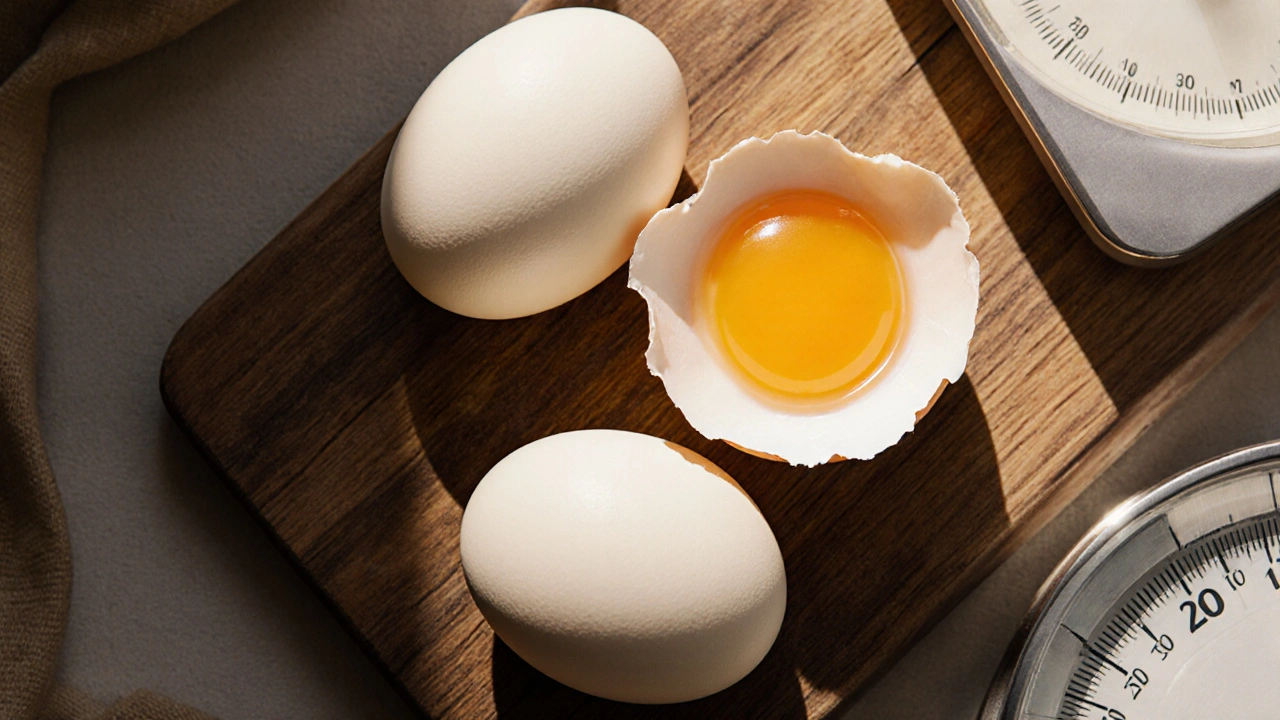Egg Calorie Count – Understanding Calories in Eggs
When you look at egg calorie count, the number of calories in a single egg, which varies with size and preparation method. Also known as egg calories, it is a key metric for anyone watching food intake. If you’re counting macros, the egg calorie count is the number you’ll log each time you crack one open. Below you’ll also meet protein content, the high‑quality protein an egg provides (about 6 g in a large egg) and cholesterol, the cholesterol amount that comes with every egg (roughly 185 mg in a large egg). For athletes, these facts tie directly into pre‑game meals, the nutrition plan you eat before a workout or competition because eggs are a popular choice for stable energy.
Egg calorie count isn’t a one‑size‑fits‑all figure. A small egg (about 38 g) supplies roughly 55 calories, a medium (44 g) around 68 calories, and a large (50 g) pushes close to 78 calories. Cooking adds another layer: a boiled egg keeps the raw count largely intact, while scrambling with butter can add 30‑40 extra calories. So the simple equation is: egg calorie count = base calories + cooking additions. Knowing the exact number helps you stay within your daily calorie budget.
The protein content of an egg plays a big role in its calorie makeup. Each gram of protein contributes about 4 calories, meaning the six grams in a large egg account for roughly 24 of its total calories. That protein is a complete source, delivering all essential amino acids needed for muscle repair. For anyone building strength, the protein‑derived calories are the most valuable part of the egg’s energy profile.
Cholesterol often scares people, but it doesn’t add calories. The 185 mg of cholesterol in a large egg is a nutrient, not an energy source. It affects blood lipid levels, not caloric intake. Understanding the difference between calorie‑dense nutrients (protein, fat) and non‑caloric components (cholesterol, vitamins) lets you make smarter food choices without over‑estimating the impact on your energy balance.
When you plan a pre‑game meal, the egg calorie count becomes a tool for timing and balance. A typical recommendation is 1‑2 eggs about two hours before activity, delivering 150‑200 calories, steady protein, and a modest fat load. This combo fuels the body without causing a spike in blood sugar, unlike many sugary energy drinks. The steady release of energy from eggs supports endurance and focus during the workout.
If you compare eggs to popular energy drinks, the contrast is stark. A 16‑oz energy drink often packs 200‑300 calories, most from sugar, plus caffeine that can jitter the nervous system. An egg, by contrast, gives you about 80 calories from protein and healthy fats, no caffeine, and a full set of micronutrients. For athletes who need calories without the crash, the egg calorie count is a safer, more sustainable option.
Tracking the egg calorie count is easy with modern apps or a kitchen scale. Weigh the egg, note its size, and choose the appropriate cooking factor. Many nutrition trackers already split raw, boiled, and fried categories, letting you log the exact calories in seconds. Pair this with a quick glance at protein content and cholesterol to get a full picture of what you’re putting into your body.
Now that you understand how the egg calorie count interacts with protein, cholesterol, and pre‑game nutrition, you’ll see why it’s a staple in many diet plans. Below you’ll find a curated set of articles that dive deeper into egg‑based meals, calorie‑smart cooking, and the role of eggs in sports performance. Browse the list to find practical tips, recipes, and science‑backed insights that will help you use eggs more effectively in your everyday eating routine.
Find the exact calorie count for two eggs, see how size and cooking method affect the numbers, and get tips for low‑calorie meals.

